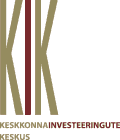Crops ripening
Text Vahur Sepp, forester
Photo Eevi Pärt, Animal of the Year photo gallery
Boar; Wild boar Metssiga Sus scrofa
A feast of meals has arrived for boars – field crops are ripening.
Man and boar are both omnivores, preferring in case of vegetable varieties those rich in carbohydrates and starch. It also seems that the taste preferences of us and boars are quite similar.
In July, after the flowering, winter wheat grains reach the milky ripeness stage. The boars seem to keep well informed, and most frequently attack wheat fields bordering to forest land. It would be useful to have a strip of cut grass between the field and the forest, where hunters might monitor the animals. A tall crop provides the game with good shelter in addition to food. Shooting is really only feasible from an elevated seat.
In larger fields boars establish daytime resting areas so that it will not be necessary to move into the forest between meals. Rape fields provide particularly good shelter. Boars will not eat rape but use these fields for sleeping and temporary stopping places.
Pea pods too swell to edible size in July. Pigs chew the pods and the remaining fibrous mass is spit out. Feeding on grain works in the same way.
In the second half of August, depending on weather, farmers start to harvest the ripe winter wheat. Then it is time for the boars to move into the summer wheat fields. As the next crop oats suit admirably.
Boars will not go for rye and barley. The sharp spines in the ears of grain make getting at the grain troublesome and time-consuming for them. These fields will only be visited where nothing better has been sown. But if the barley or rye is left unharvested due to poor weather boars will start feeding in these fields in October-November. By that time the autumn rains will have broken down or softened the spines in the ears.
The fat layer under the skin increases steadily. Entering the harsh winter that unavoidably will arrive with some overweight feels safer.
Estonian original published 05.08.2015









